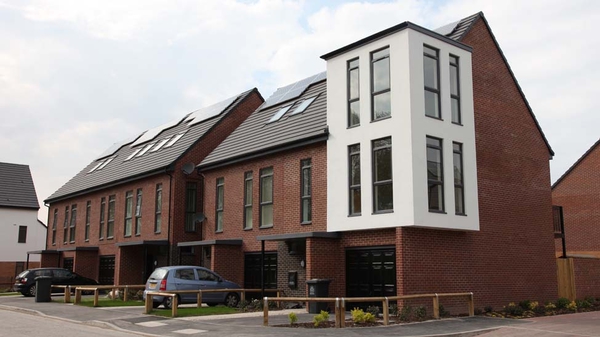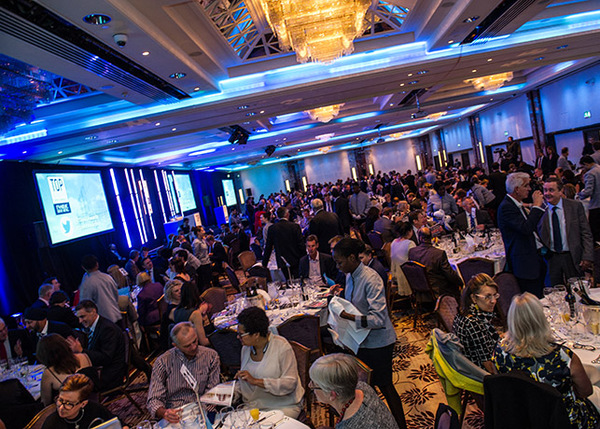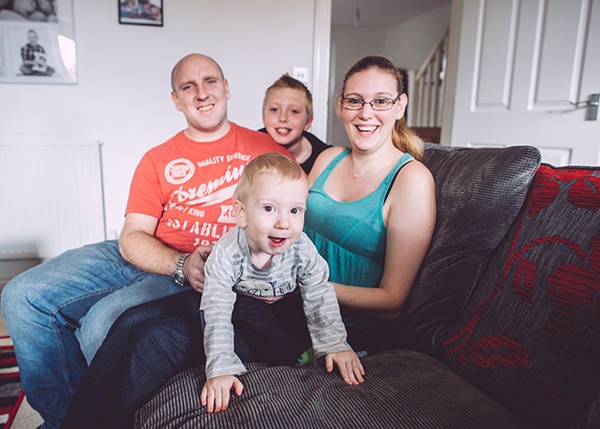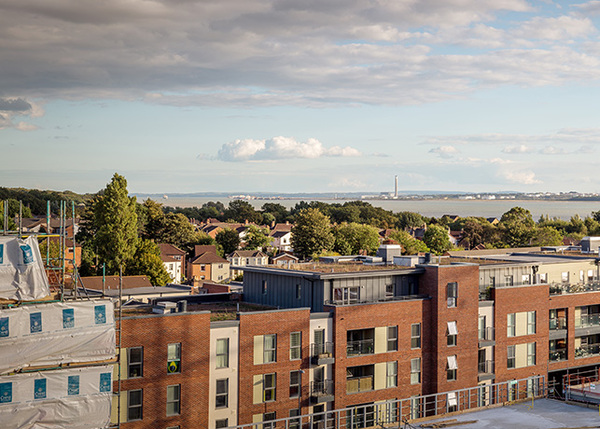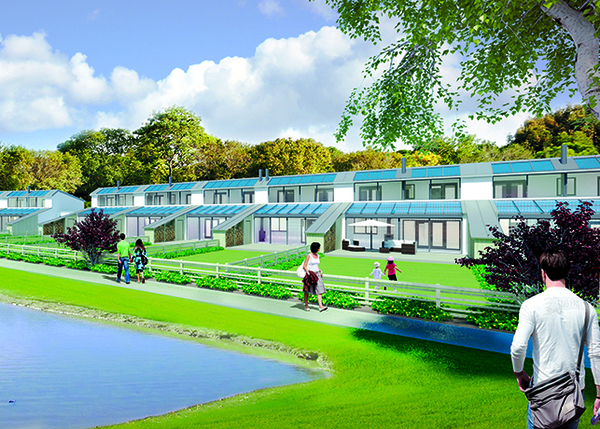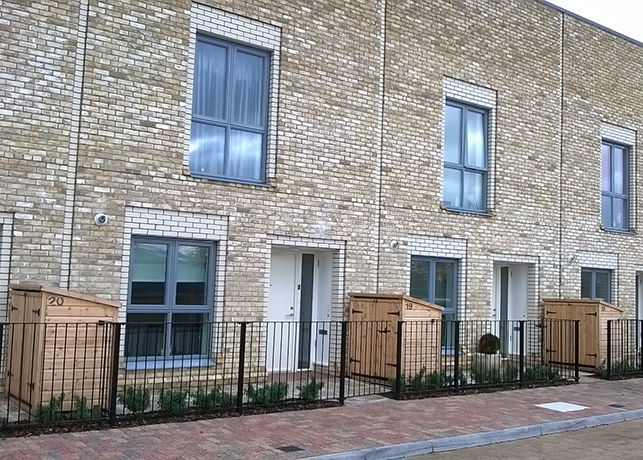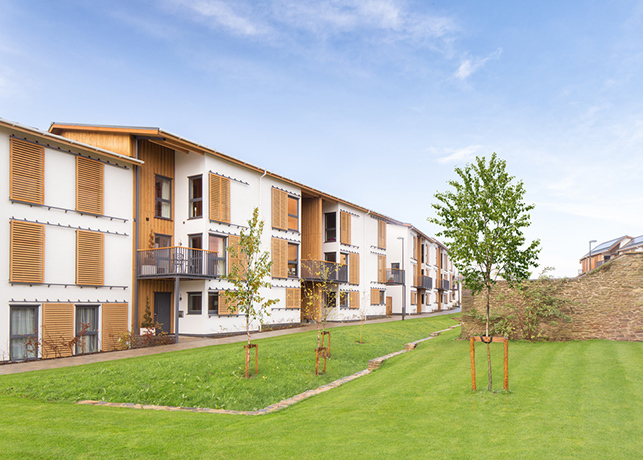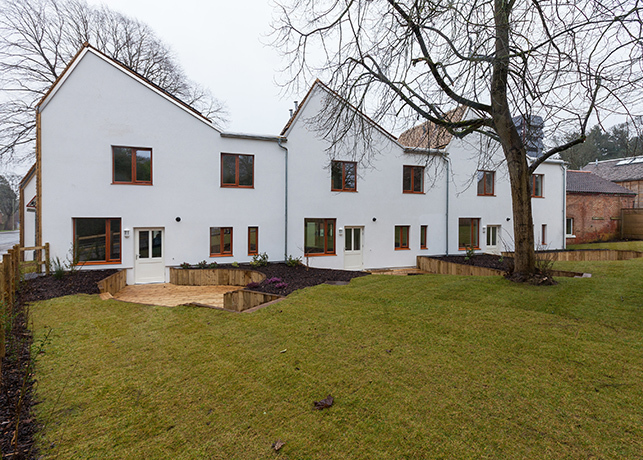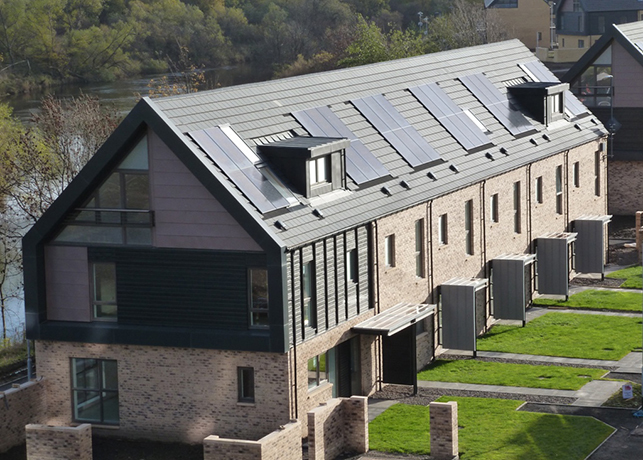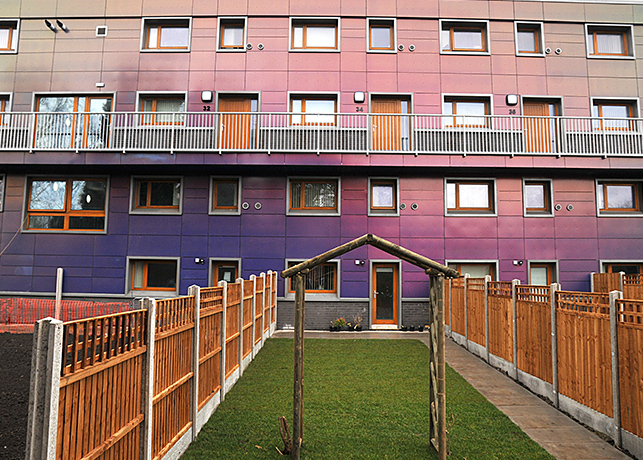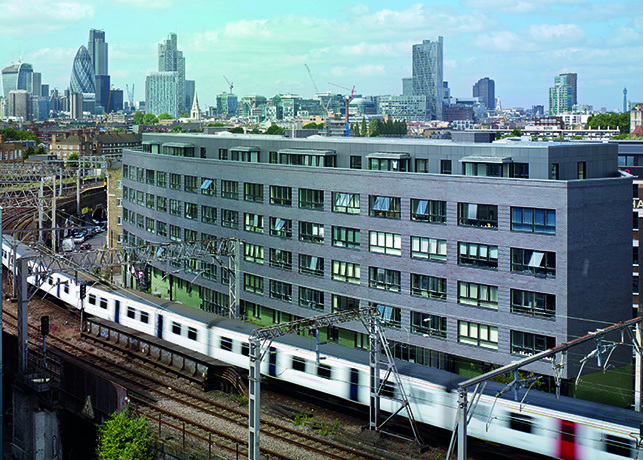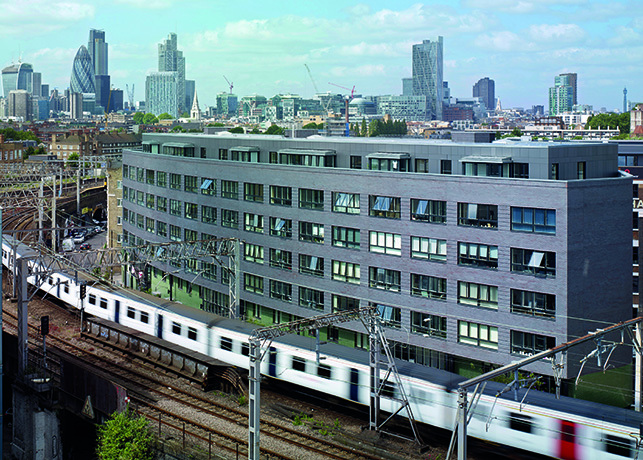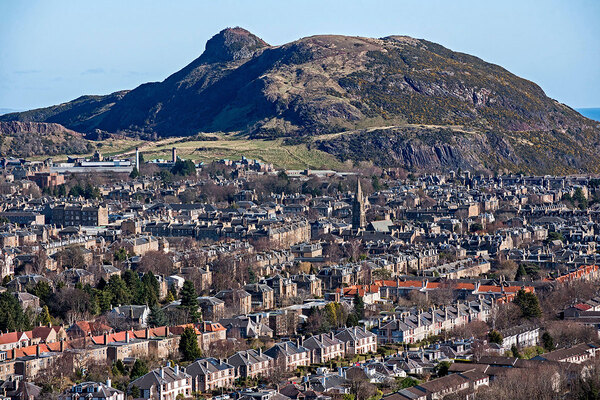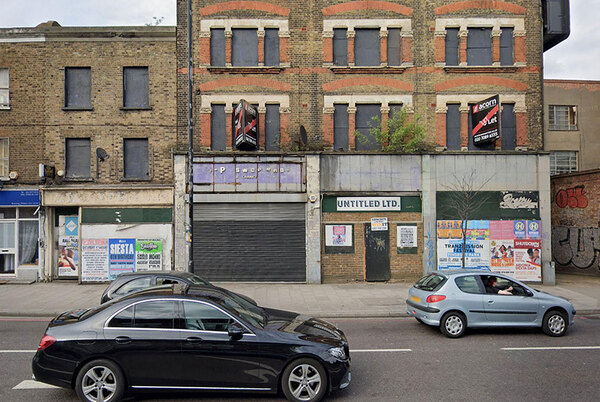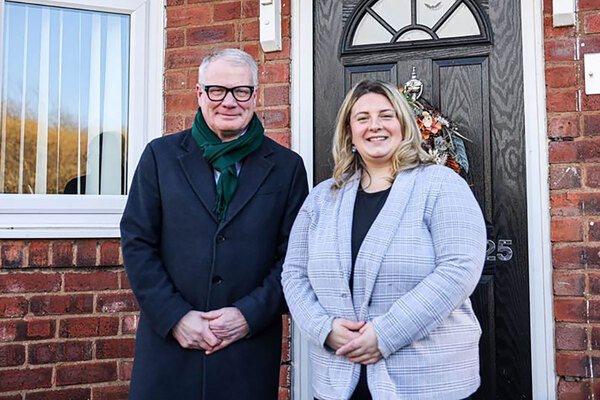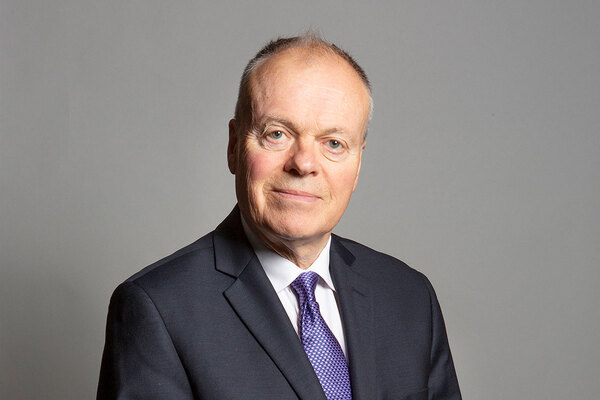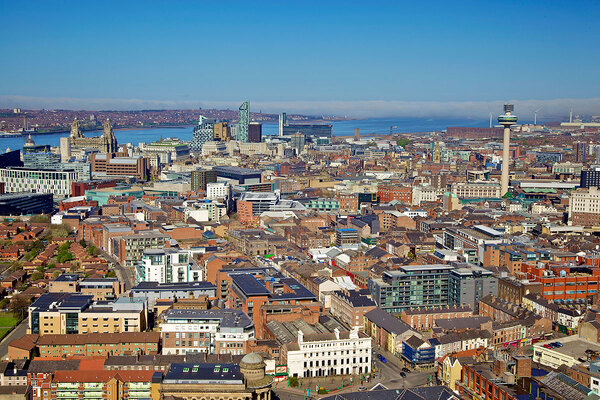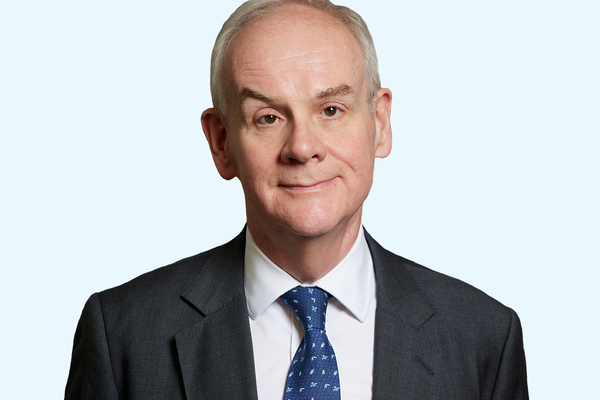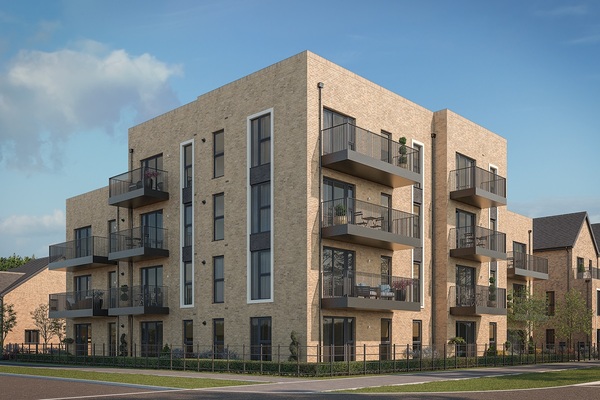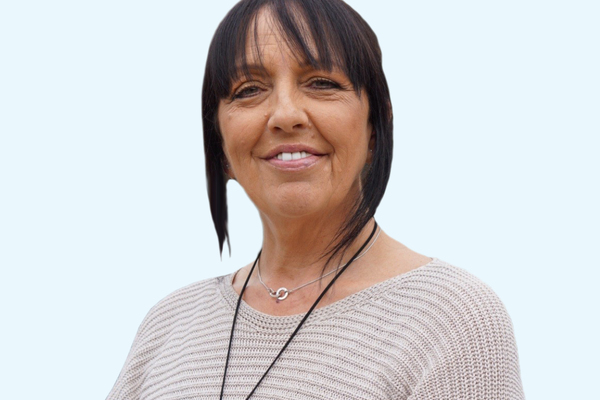Top 60: Sustainable Developments of the Year
Inside Housing is showcasing the best 60 developments of the last year. This year, our list is split into 10 categories of excellence which we will reveal over the next 10 weeks. Michael Atherton reports on the best sustainable housing developments of the year.

A word from our sponsor
We are proud to be sponsoring the Sustainable Development of the Year category at this year’s Top 60 Developments Awards.
These awards highlight the best developments across the country, showcasing the most innovative and inspiring developments throughout the year. With the expert judges on the panel, the winners of these awards should feel very proud.
The Sustainable Developments of the Year highlight the importance of taking care of our environment. We believe all parts of the construction industry should work closely in partnership to reduce the mark made and ensure safeguarding of the environment for future generations.
For this award, the judges have looked for innovative and problem-solving approaches rather than solely at the scheme’s overall sustainability score.
At Higgins, we are committed to sustainable development, from buildings and bricks to bats and birds. We take all elements of construction seriously and incorporate green and sustainable practices across our business. These include recycling or reusing materials, reducing energy and water use, and complying with all the requirements of our ISO 14001 environmental management accreditation and our Considerate Construction Scheme membership. We champion modern working practices, which is why we are keen supporters of these awards.
As this is this category’s first year, we hope that the winner goes on to inspire sustainability improvements and encourage people to solve their own sustainability issues in new and innovative ways, while still creating excellent developments for people to enjoy.
Paul Cooke, director, Higgins Construction

The judges
- Andrew Eagles, managing director, Sustainable Homes
- Simon Nicol, director, BRE
- Joanna Embling, sole practitioner, Joanna Embling Property Consultant
- Matthew O’Connell, senior policy officer, residential and sustainability, British Property Federation
The judges will chose an overall winner in this category, to be announced on Friday 16 October in London

Bath Riverside
Number of homes in development: Up to 2,000
Cost: £500m
“An abandoned site put to good use.”
Andrew Eagles, managing director, Sustainable Homes
The scheme: Abandoned for 20 years, an old crane manufacturing plant on the banks of the River Avon is being transformed into the 44-acre Bath Riverside development by Crest Nicholson Regeneration, working with Bath & North East Somerset Council, the Homes and Communities Agency and 12,000-home Curo Group.
The former brownfield site will provide up to 2,000 homes, a new park, primary school, surgery, cafes and restaurants.
A total of 366 homes are occupied, with a further 311 under construction. On completion, a quarter of the project will be affordable housing, split between 70% social and affordable rent, and 30% shared ownership.
Sustainable energy for the Code for Sustainable Homes Level 4 development comes from a combined heat and power energy centre, and every new home has a smart meter. Water butts mean less than 105 litres of water is consumed per person per day, and all appliances are A-rated. New flood defences return heavy rain back to the river, while urban drainage measures reduce rainwater run-off by 20%. Residents use collected rainwater on herb and fruit gardens.

Eco Terrace
Number of homes in development: Three
Cost: £655,000
“A very low energy home with additional other benefits.”
Andrew Eagles, managing director, Sustainable Homes
The scheme: This scheme from 21,000-home association Radian, in partnership with East Hampshire District Council, the Whitehill Bordon Ecotown and the Homes and Communities Agency, is the result of an international design competition exploring new ways of sustainable family living.
The homes are designed to Code for Sustainable Homes Level 5, with energy generated on site using solar panels and mechanical heat-recovery ventilation. Chestnut shingles on roofs provide integrated bat roosts and bird nesting sites. Wildlife gardens, a communal refuse and recycling building and integrated cycle storage are also provided.
There is an emphasis on daylight throughout the homes and small courtyard gardens are provided.

Glasgow 2014 Athletes’ Village
Number of homes in development: 700 plus a 120-bed care home
Cost: £150m
“This is what we want from sustainability: happy people and high demand. Scale is impressive.”
Andrew Eagles, managing director, Sustainable Homes
The scheme: Last summer, the Athletes’ Village housed 6,500 Commonwealth Games competitors, but now the 33-hectare site provides 700 homes – including 624 two, three and four-bedroom houses with gardens - for rent and sale, plus a 120 bed-care home. Four-hundred homes are for social rent.
The eco-village, from Glasgow City Council with City Legacy (a consortium of four housebuilders: CCG, Cruden, Malcolm Logistics and Mactaggart & Mickel), features a district heating system and combined heat and power plant. Off-site manufacture allows the developer to increase the insulation of homes - the development achieves design standards including the BREEAM Ecohomes ‘Excellent’ standard.

Hanham Hall
Number of homes in development: 185
Cost: £38m
“Hanham Hall will be run by its residents - this was quite innovative.”
Andrew Eagles, managing director, Sustainable Homes
The scheme: England’s first large-scale zero-carbon development, a former NHS hospital on a 6.6 hectare site, now provides 185 one to five-bedroom homes: 122 Barratt private properties, and seven shared ownership, two open market rent and 54 social rent owned by 36,000-home Sovereign Housing Association. The Grade-II listed Hanham Hall near Bristol is the focal point, refurbished for possible use as a community centre, business space, crèche or café.
Hanham Hall is run by residents, who have shares in a community interest company set up to manage buildings and grounds.
Southwards-facing homes take full advantage of daylight.

Passive Close
Number of homes in development: 51
Cost: £10m
“Good to see other, non energy efficiency sustainability elements.”
Andrew Eagles, managing director, Sustainable Homes
The scheme: The UK’s largest all-affordable Passivhaus development features 51 affordable rent homes on a former brownfield site in Rainham, manufactured in a Swedish factory. Timber frames with breather membranes, insulation and plasterboard, triple-glazed windows and doors were delivered completed to the site of the Circle Housing development.
Mechanical ventilation and heat recovery systems mean heating comes from passive sources, such as sunlight and heat from electrical appliances.
Residents received training on how to make the most of Passivhaus’ energy-saving potential. With residents nervous about living without a heating system, high-energy efficiency combination boilers were fitted, but with small radiators.

Erneley Close
Number of homes in development: 32
Cost: £3m
“Impressive. Commendable to see highly energy efficient components used.”
Andrew Eagles, managing director, Sustainable Homes
The scheme: By taking 32 structurally-challenged 1960s maisonettes in need of significant renovation, and retrofitting them with innovative Passivhaus design and build principles, Eastland Homes’ Erneley Close in Longsight, Manchester is now the largest refurbishment scheme of its type in the north of England. Eastland Homes became part of 12,500-home One Manchester Housing Group earlier this year.
Triple-glazed windows and high performance doors were installed along with insulated roofs and external walls. A mechanical ventilation heat recovery unit saves up to 95% of the heat generated by occupants.
One resident, who used to spend £15 a week heating her old flat with fan heaters, has only used the heating once since moving in.
